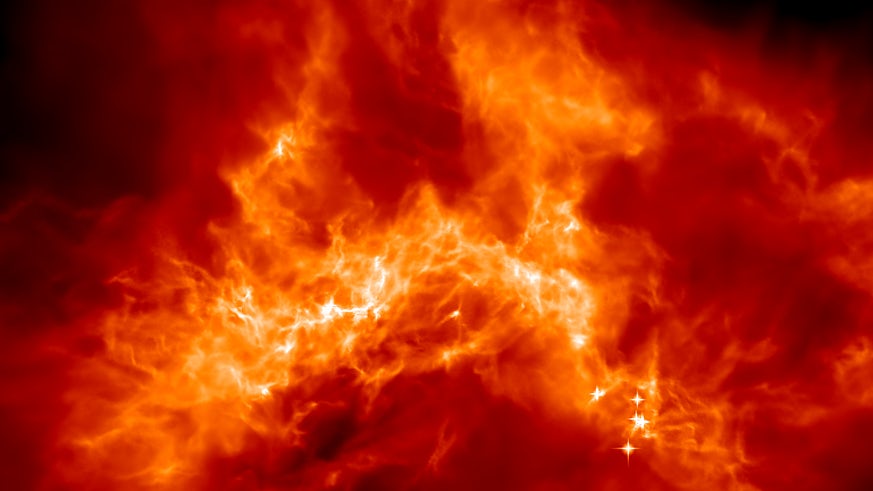Engaging young people with real astronomy
25 January 2019

The School of Physics and Astronomy has received £445,000 as part of two grants worth over £8 million for projects aimed at young people.
Dr Paul Roche of the School of Physics and Astronomy at Cardiff University has big plans for a group of around 1,000 school children in the South Wales valleys, with a science education programme that will help to bring the universe into their classrooms.
The UniverseLab project is part of a Wales-wide STEM initiative called Trio Sci Cymru, which involves scientists from Cardiff, Swansea, Aberystwyth and Bangor universities in an ambitious programme to try and boost interest and engagement with science.
As part of UniverseLab the students will experience space in exciting new ways using high tech teaching methods, like a mobile projection system that turns a school hall into a 3D cinema, and by using virtual and augmented reality to tour inside the International Space Station and fly around the Solar system. They will analyse images of asteroids, comets, stars and distant galaxies using the Faulkes Telescope Project, remotely controlling telescopes all around the world, and develop their own plans to travel to and study Mars. The pupils will also get “hands on” with real space rocks and dinosaur fossils, studying what happens when asteroids collide with the Earth.
The Trio Sci Cymru will run for 3 years, and the pupil’s progress and interest in science and maths subjects will be evaluated throughout the programme.
“We hope that involving the students in real science will inspire them, and show that how important science is to their future”, said Dr Roche. “They will be using professional research facilities like the £5 million Faulkes Telescopes in Hawaii and Australia, learning that the things that they are studying in their classrooms in Wales apply equally when we are planning the journey to Mars, or when you observe the most distant corners of the Universe”.
The UniverseLab project is part of the £1.95 million Cardiff University component of the £8.2 million Trio Sci Cymru initiative, which is backed by £5.7m of EU funding and £2.5m from the Welsh Government’s National Science Academy. Trio Sci Cymru aims to increase take up and grades in STEM subjects among young people living in West and North Wales and the South Wales Valleys.
Dr Roche, who is the European Space Agency’s “Space Ambassador for Wales”, is also involved in helping to connect up several Scandinavian countries to a project which gives control of multi-million pound astronomical facilities to school children.
The Faulkes Telescope Project is based jointly at Cardiff and Swansea universities, and is a world-leading science education project that allows schools to remotely control telescopes in Hawaii, Australia, Chile, South Africa, Tenerife and the USA – with more sites due online over the next few years. Pupils can control the telescopes and obtain incredible images of asteroids, comets, stars and galaxies, and assist in gathering data that is then used by scientists around the world.
Dr Roche said: “The Online Observatory project will help us to share our expertise and experience of using telescopes to engage schools in real science. “We are working with astronomers in Denmark, Norway, Finland and Latvia, to help them use their observatories and scientific research to try and inspire school children to engage with science and technology careers.”
The Online Observatory project is funded by £300,000 from the European Union Erasmus+ programme, facilitating collaborations between countries. The programme will last for 2 years, and Cardiff University will focus on developing educational material that allows pupils to study exploding stars (supernovae) and newly discovered planets orbiting distant stars (exoplanets) in particular, working with teams of researchers from across Europe. The Cardiff team will also produce “virtual tours” of each of the facilities that are part of the Online Observatory collaboration, allowing pupils to look around the sites without having to leave their own classroom.